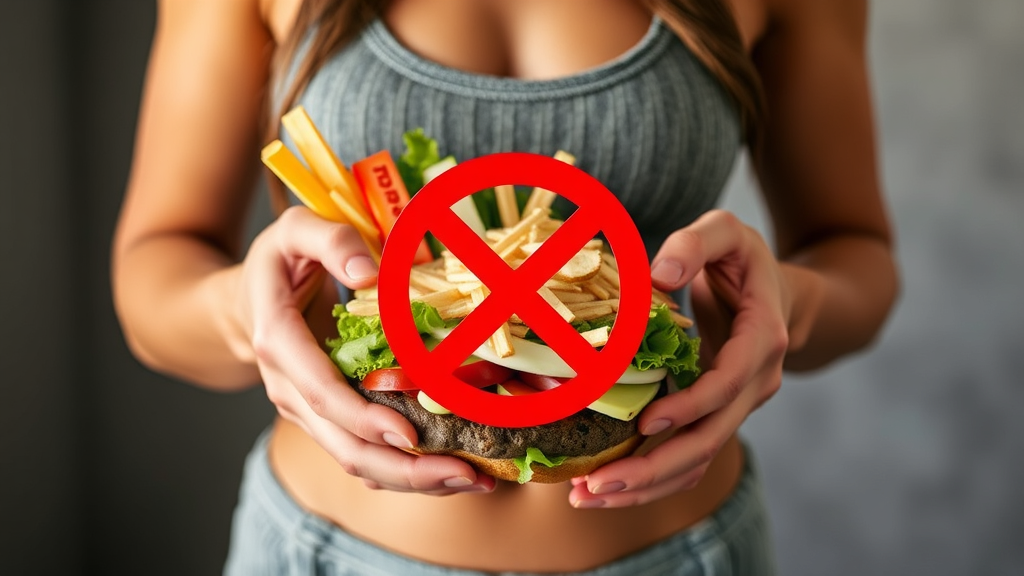Are Cheat Meals Okay When Trying to Lose Fat?
When you’re trying to shed fat, you might wonder: are cheat meals okay? It’s a common question among those pursuing a healthier lifestyle. Cheat meals can provide psychological relief, but they also come with considerations that you should be aware of.
First, let’s understand what a cheat meal is. A cheat meal is when you allow yourself to eat something that isn’t on your meal plan. Instead of feeling deprived, a cheat meal can act as a reward. However, it’s essential to approach this concept mindfully, especially if fat loss is your goal.
Benefits of Cheat Meals
Cheat meals can actually have several benefits when you are on a weight-loss journey:
- Psychological Relief: Sticking to a strict diet can be challenging. A cheat meal allows you to enjoy your favorite foods without guilt.
- Boosts Metabolism: Sometimes, increasing your calorie intake briefly can stimulate your metabolism. This is particularly relevant if you’ve been on a low-calorie diet.
- Social Engagement: Sharing a meal with friends or family can enhance your social life, making your diet more sustainable.
Potential Risks of Cheat Meals
While cheat meals have benefits, they can also pose risks if not managed well:
- Overindulgence: It’s easy to let a cheat meal turn into a cheat day or week. Tracking your portions is crucial.
- Guilt: Some people may feel guilty after indulging in cheat meals, which can lead to unhealthy eating patterns.
- Disrupting Progress: If cheat meals are frequent or excessively portioned, they can hinder fat loss efforts.
How to Incorporate Cheat Meals
To reap the benefits of cheat meals while minimizing risks, consider these strategies:
- Plan Ahead: Choose a specific day or occasion for your cheat meal and plan your week’s meals accordingly.
- Portion Control: Limit the size of your cheat meal. It’s about enjoyment, not excess.
- Healthy Choices: Even when indulging, you can choose healthier options that won’t completely derail your progress.
Finding Balance
Cheat meals is about balance. If you feel that they are affecting your fat loss progress negatively, it might be time to reassess. Engaging in a flexible dieting approach can allow more freedom while still prioritizing your goals.
It’s also essential to consider how cheat meals fit into your overall calorie intake. If you’re following a calorie deficit for fat loss, a strategically placed cheat meal can help you stay within those bounds. For more insights on managing calorie intake, check out resources from Bodybuilding.com.
Alternatives to Cheat Meals
If cheat meals pose a problem, you might explore alternatives:
- Cheat Snacks: Instead of a full meal, consider smaller cheat snacks that satisfy cravings without excessive calorie intake.
- Creative Cooking: Try healthier versions of your favorite cheat meals that fit into your dietary needs.
Tracking your progress can also help you determine if cheat meals are serving you well. Keeping a food diary can allow you to understand how these meals impact your weight and overall mindset. Websites like MyFitnessPal offer great tools for tracking your food intake.
Cheat meals can absolutely fit into a fat loss plan if approached correctly. They can serve as motivators and help prevent feelings of deprivation. However, moderation is key. By planning your meals and being mindful of portion sizes, you can enjoy your cheat meals without compromising your goals.
Ultimately, the decision on including cheat meals should reflect what works best for you. Listen to your body, and don’t be afraid to adjust your approach. Remember, a long-term mindset will yield the best results. For further guidance on nutritional approaches, visit Nutrition.gov.
The Psychology Behind Cheat Meals and Weight Loss
Eating strategies play a crucial role in weight loss journeys. One popular topic that arises in these discussions is whether cheat meals can fit into a fat-loss plan. Many people believe that indulging in cheat meals can sabotage their efforts. However, when approached thoughtfully, cheat meals can offer psychological benefits that support long-term weight loss.
Cheat meals, often viewed as a reward for sticking to a diet, can fulfill several emotional and psychological needs. They can break the monotony of strict eating patterns, making your diet feel less like punishment and more like a lifestyle. When you know you have a satisfying meal to look forward to, it can enhance your overall adherence to your diet. This makes losing fat more manageable because you won’t feel deprived.
Here are some psychological perspectives on the role of cheat meals:
- Reward Mechanism: Cheat meals can activate the brain’s reward system, leading to increased dopamine levels. This rewards you for your hard work, making it easier to stay motivated.
- Reduced Cravings: Allowing yourself to indulge can help curb cravings for unhealthy foods. When you give yourself permission to enjoy a cheat meal, it can reduce binge eating episodes.
- Social and Emotional Connections: Food often plays a role in social situations. Being able to enjoy a meal out with friends can enhance social bonds and improve your overall mood.
- Improved Mental Resilience: Knowing that you can enjoy a cheat meal can enhance your mental resilience against temptation. It creates a healthier relationship with food, where it’s less about restriction and more about balance.
Nevertheless, it’s crucial to approach cheat meals with the right mindset. Here are some advanced strategies to incorporate cheat meals effectively while trying to lose fat:
- Plan Ahead: Decide in advance when you’ll have a cheat meal and what you’ll eat. This prevents impulsive decisions that can lead you to overindulge.
- Portion Control: Enjoy your cheat meal, but be mindful of portion sizes. You can experience satisfaction without going overboard.
- Stay Hydrated: Drink water before your cheat meal. Sometimes, your body confuses thirst with hunger, which can lead to overeating.
- Don’t Skip Meals: Avoid the mistake of skipping meals to “make room” for a cheat meal. Sticking to your regular eating schedule can help regulate your appetite.
While including cheat meals can have psychological benefits, it’s essential to monitor how they affect your progress. Some individuals find that cheat meals can disrupt their routine, leading to guilt or overeating. Here’s a simple self-reflection exercise:
| Before Cheat Meal | After Cheat Meal |
|---|---|
| How do I feel about my diet? | Did I stick to my plan or go overboard? |
| What do I look forward to in my cheat meal? | Did I enjoy the meal or feel guilty? |
| How will this affect my next week in terms of goals? | Did I stay motivated for my fitness goals? |
Additionally, the key is to enjoy your cheat meals without guilt. Remember, food is not solely about fuel; it also carries emotional connections. Recognizing the significance of these connections can lead to a healthier relationship with food.
If you’re looking to delve deeper into the psychology of eating and how it relates to weight loss, consider visiting Eat Right or The Nutrition Society. These resources provide valuable insights into nutrition science and eating behaviors.
Cheat meals can play a constructive role in your fat-loss journey when they are planned wisely and consumed mindfully. By combining the joy of eating with a balanced approach to your diet, you can support your weight loss goals while still enjoying the foods you love.
Balancing Cheat Meals in a Structured Diet Plan
When you’re on a diet aimed at losing fat, one key question pops up: Are cheat meals okay? Striking a balance between your dietary goals and the enjoyment of food is essential for long-term success. Understanding how to incorporate cheat meals into a structured diet can make your weight loss journey less daunting and more enjoyable.
Cheat meals refer to planned indulgences within an overall healthy eating plan. They can serve multiple purposes. For many, cheat meals can help combat feelings of deprivation that often accompany strict dieting. By allowing yourself a break, you can maintain motivation and adherence to your program without feeling like you’re constantly saying no to your favorite foods.
So, how can you effectively integrate cheat meals into your weight loss routine? Here are some strategies to consider:
- Plan Ahead: Schedule your cheat meals in advance. This allows you to look forward to them without guilt and helps to keep you focused on your diet during the week.
- Portion Control: Enjoying a cheat meal doesn’t mean going overboard. Keep your portions reasonable to avoid negating your progress.
- Choose Wisely: Opt for foods that you truly love. Whether it’s pizza, ice cream, or a slice of cake, indulge in something that satisfies your cravings, but try to maintain quality over quantity.
- Stay Active: Incorporate some physical activity on the day of your cheat meal. A workout can help mitigate the impact of extra calories.
- Mindful Eating: When enjoying a cheat meal, savor each bite. This practice can enhance satisfaction and lessen the urge to overeat.
To better understand the potential effects of cheat meals on your diet, consider the following points:
| Benefit | Description |
|---|---|
| Boosts Metabolism | Occasionally eating more calories can give your metabolism a slight boost. |
| Reduces Cravings | Planned indulgences can help you avoid future cravings that might lead to binge eating. |
| Enhances Psychological Well-being | Cheat meals can provide emotional satisfaction, making it easier to stick with the diet. |
While cheat meals have their benefits, it’s important to be aware of how to prevent them from derailing your progress. Many people fear that one cheat meal could lead to a cycle of unhealthy eating. To mitigate this risk:
- Limit Frequency: Stick to one cheat meal per week or bi-weekly to avoid overindulgence.
- Maintain Control: Avoid all-you-can-eat scenarios. Confine your cheat meal to a specific time and place.
- After the Meal: Get back to your healthy eating habits immediately after your cheat meal. Don’t let one indulgence turn into a cheat day or week.
Of course, individual results may vary. What works for one person may not work for another. It’s crucial to listen to your body and adjust accordingly. Stay mindful of how your body responds to cheat meals. If you notice they lead to feelings of guilt or derail your focus, consider adjusting your approach.
Remember, a structured diet is a flexible diet. As you make your plan, consider how best to incorporate those cheat meals in a way that enhances your overall experience rather than detracts from it. You can always learn more about this balance by visiting reputable sources like Bodybuilding.com or Healthline. They offer extensive resources on healthy eating and dieting strategies.
Cheat meals can indeed play a vital role in a successful fat loss journey when managed correctly. They can provide a much-needed mental break and help maintain the long-term commitment to your health goals. Just remember, the key to balancing cheat meals in your diet is to plan, control portions, and stay mindful. With these strategies, you can enjoy your favorite foods while continuing to make progress in your fat loss efforts.
How Cheat Meals Can Impact Your Metabolism
When you’re on a journey to lose fat, you’re likely focusing on a strict meal plan and regular exercise. However, the concept of cheat meals often comes up in discussions about dieting and weight loss. Understanding how cheat meals can impact your metabolism is crucial for making informed choices about your nutrition.
Cheat meals are designated breaks in your diet, where you allow yourself to indulge in foods you might typically avoid. They can provide psychological benefits and may even help with metabolic processes. Here’s how incorporating cheat meals can affect your body:
Boosting Your Metabolism
One of the key benefits of occasional cheat meals is the potential boost they can provide to your metabolism. When you eat less over a period, your body can adapt to the lower caloric intake by slowing down your metabolic rate. Introducing a higher-calorie cheat meal can temporarily increase your metabolic rate due to a phenomenon known as “dietary-induced thermogenesis.” This process occurs when your body works harder to digest and process food, thereby burning more calories.
How Cheat Meals Affect Hormones
Cheat meals can also influence various hormones that play a critical role in metabolism:
- Leptin: This hormone signals to your brain when you’re full and when to burn fat. A cheat meal can increase leptin levels, promoting fat loss.
- Insulin: A spike in insulin levels from a cheat meal can enhance nutrient absorption, helping with muscle recovery and growth.
- Cortisol: Stress can cause your body to overproduce cortisol, leading to weight gain. A cheat meal can reduce feelings of deprivation and help manage cortisol levels.
The Psychological Benefits of Cheat Meals
While the physical effects of cheat meals are important, the psychological advantages can also play a significant role in your fat-loss journey. Deprivation can lead to cravings, which might result in binge eating. Allowing yourself a cheat meal can satisfy those cravings and help you stick to your diet in the long run.
Many people find that including cheat meals helps them maintain their willpower and keeps them motivated. It’s essential, however, to approach cheat meals mindfully. Here are some tips to make the most of your cheat meals:
- Plan Ahead: Schedule your cheat meal for a specific day and time. This will help you manage your cravings better.
- Stay Mindful: Enjoy your meal, but don’t go overboard. Pay attention to your hunger cues and satisfaction.
- Balance Your Cheat Meal: Try to include healthy options alongside your indulgent foods for a more balanced treat.
Timing Your Cheat Meals
The timing of your cheat meals can also play a role in fat loss. Many nutrition experts recommend having cheat meals after a strenuous workout. Exercising can create a calorie deficit, making it a perfect time to indulge without guilt. Your body will also be primed to utilize the extra calories for recovery and muscle repair.
Potential Downsides of Cheat Meals
Despite the benefits, there are potential downsides to consider. If cheat meals become too frequent or excessive, they can hinder weight-loss goals. It’s essential to keep cheat meals in moderation and not let them turn into cheat days or weeks. Staying conscious of portion sizes and frequency is key.
Also, keep in mind that not all cheat meals are created equal. Highly processed or unhealthy foods can lead to increased cravings, making it harder to return to your regular diet. Instead, consider opting for a more wholesome version of your favorite treats.
Final Thoughts
Cheat meals into your fat loss plan can have both psychological and metabolic benefits. By understanding the effects of cheat meals on your body and keeping them in moderation, you can enjoy your favorite foods while still achieving your goals. For more detailed insights on metabolism and diet planning, check out Bodybuilding.com and Healthline.
Healthy Alternatives to Traditional Cheat Meals
When you’re on a fat loss journey, it can be challenging to resist the allure of indulgent meals. However, there are healthier alternatives to traditional cheat meals that allow you to satisfy your cravings without derailing your progress. By choosing nutrient-dense options, you can still enjoy delightful flavors while keeping your goals in check.
Healthy Pizza Alternatives
Pizza can be a major cheat meal staple, but it can easily be made healthier. Here are a few ideas:
- Cauliflower Crust Pizza: Swap out the traditional crust with a cauliflower base to reduce carbs and calories.
- Whole Wheat or Chickpea Pizza Base: Use whole wheat or chickpea flour for a fiber-rich alternative.
- Top with Veggies: Load up on fresh vegetables instead of high-calorie meat toppings.
Sweet Treat Alternatives
If you crave desserts, try these guilt-free options:
- Greek Yogurt Parfait: Layer Greek yogurt with fruits and a sprinkle of nuts for a nutritious sweet treat.
- Frozen Banana Bites: Dip banana slices in dark chocolate and freeze for a quick, satisfying dessert.
- Chia Seed Pudding: Mix chia seeds with almond milk and top with fruit for a healthy pudding alternative.
Snack Alternatives
Snacks often lead us into temptation. Here are healthier options to keep you on track:
- Popcorn: Air-popped popcorn is low in calories and can be flavored with herbs or spices instead of butter.
- Nuts and Seeds: These provide healthy fats and can satisfy cravings for crunchy snacks.
- Rice Cakes: Top them with almond butter or guacamole for a flavorful snack without excess calories.
Healthier Burger Alternatives
Craving a burger? Here’s how to make it healthier:
- Turkey or Quinoa Patties: Replace beef with turkey or a quinoa and black bean mix for a leaner meal.
- Lettuce Wraps: Skip the bun and use large lettuce leaves to wrap your burger for decreased carbs.
- Homemade Pickles: Top your burger with homemade pickles instead of mayonnaise for an added crunch without extra calories.
Why Choose Healthy Alternatives?
Opting for healthier versions of traditional cheat meals allows you to enjoy the foods you love without sabotaging your weight loss goals. Here are some benefits:
| Benefit | Description |
|---|---|
| Fewer Calories | Healthy alternatives often contain fewer calories, making them easier to fit into your daily intake. |
| More Nutrients | Nutrient-dense foods provide your body with essential vitamins and minerals. |
| Staying Satisfied | Balanced meals can help curb cravings and keep you feeling full longer. |
Mindful Eating Practices
Healthy alternatives is more effective when paired with mindful eating practices. Here are tips to enhance your eating experience:
- Focus on Flavor: Pay attention to the taste and texture of your food. This makes healthy options more enjoyable.
- Eat Slowly: Take your time to chew and savor each bite, which can lead to greater satisfaction with smaller portions.
- Listen to Your Body: Understand your hunger cues, and eat only when you’re truly hungry.
Remember, you don’t have to give up your favorite meals entirely. By making healthier swaps and engaging in mindful eating, you can enjoy a balanced diet while still indulging now and then. For further insights into healthy eating and recipes, visit Eat Well 101 or Healthline for expert advice and inspiration.
The Role of Cheat Meals in Long-Term Dietary Success
When you embark on a weight loss journey, the idea of cheat meals may float around in fitness circles. You might wonder if incorporating cheat meals into your diet can help you succeed in your long-term goals. Let’s explore the intriguing role of cheat meals in creating a flexible and sustainable eating plan without derailing your fat loss progress.
The Psychology Behind Cheat Meals
Cheat meals act as a psychological break from the structured rigidity of a standard diet plan. By allowing yourself a meal where you can indulge, you create a reward system that helps satisfy cravings. This can make it easier to stick to your overall dietary goals in the long run. Here are a few benefits of incorporating them:
- Prevention of Burnout: Eating strictly can be exhausting. Cheat meals provide a mental break.
- Curbing Cravings: Allowing yourself treats may help prevent binge eating later.
- Social Engagement: Enjoying meals with family or friends become easier when you can partake without feelings of guilt.
How Cheat Meals Fit Into Fat Loss
Many people mistakenly believe that cheat meals will sabotage their fat loss efforts. However, when balanced properly, these indulgent meals can actually serve a strategic purpose. Here’s how a well-implemented cheat meal strategy plays out:
- Increased Metabolic Rate: A higher calorie intake during a cheat meal can provide a temporary boost to your metabolism, which may promote fat loss.
- Hormonal Regulation: Cheat meals can help regulate hormones related to hunger and satiety, such as leptin, making it easier to control cravings over time.
- Improved Adherence: The allowance of cheat meals can make a strict dieting phase more enjoyable, improving adherence to your nutrition plan.
Timing and Portion Control
Cheat meals isn’t as simple as allowing yourself to eat anything you desire. Planning is crucial for ensuring that these indulgences do not disrupt your overall calorie goals. Here are some tips on timing and portion control:
- Set a Schedule: Designate one or two cheat meals per week. This helps you maintain a routine without feeling deprived.
- Control Portions: Approach cheat meals with moderation. Instead of consuming an entire pizza, enjoy a few slices paired with a healthy salad.
- Quality Matters: Opt for whole, minimally processed foods during your cheat meals when possible. This will provide greater satisfaction and may help maintain your dietary progress.
When Cheat Meals Can Backfire
While cheat meals can be beneficial, they can also lead to setbacks if not managed correctly. Here are some common pitfalls to avoid:
- Frequent Indulgence: Regularly succumbing to cravings can slow down your progress and lead to unhealthy habits.
- Emotional Eating: Using cheat meals as a response to stress or emotions can lead to overindulgence and guilt.
- Poor Choices: Loading up on junk food can negate the benefits of your overall healthy eating plan.
: Can Cheat Meals Work for You?
Cheat meals offer a realistic and manageable approach to dieting, especially for those seeking long-term success in fat loss. When implemented carefully, they can enhance motivation, prevent burnout, and even help maintain metabolic rates. However, moderation and mindfulness remain key. Always listen to your body and be aware of your personal triggers to ensure these indulgences are helping, not hindering, your weight loss goals.
For more on the impact of cheat meals and effective fat loss strategies, check out resources from Bodybuilding.com and MyFitnessPal to assist with your health journey.
Success Stories: How People Used Cheat Meals to Reach Their Goals
Many people fear that cheat meals will derail their weight loss journey. However, numerous success stories highlight how incorporating cheat meals can actually help individuals reach their fat loss goals. By strategically planning these meals, individuals can enjoy their favorite foods without completely derailing their progress.
One successful approach often involves using cheat meals as a psychological break from a strict diet. This is particularly important for those who are following a challenging meal plan. A cheat meal can provide much-needed relief, making the overall journey more enjoyable. For instance, Jenna, who lost 30 pounds in six months, strategically scheduled her cheat meal every Saturday. She felt that knowing she had a reward meal helped her stick to her healthy eating during the week. This psychological boost can be a game-changer for many.
Another success story comes from Tom, who faced challenges with cravings while trying to lose fat. He found that allowing himself one cheat meal a week actually reduced his spontaneous snacking on unhealthy foods. Instead of feeling deprived, he looked forward to his favorite pizza on Friday nights. This mindset shift made it easier for him to make healthy choices during the rest of the week. Furthermore, he reported that his cheat meals reinvigorated his commitment to his diet plan, demonstrating that balance is key in achieving weight loss goals.
There’s also a physiological aspect to consider when discussing cheat meals. When you restrict calories too much, your metabolism can slow down. For those on a strict diet, including strategic cheat meals can help stimulate the metabolism and prevent plateaus. Lisa, who lost over 40 pounds, found that including a cheat meal every two weeks kept her metabolism active and energized her to stay on track. Her success was partly due to understanding the science behind her body’s response to foods and meal timing.
While cheat meals have been beneficial for many, it’s essential to practice moderation. Mindful eating plays a crucial role in ensuring that cheat meals do not lead to binge eating. David, who transformed his life by losing 50 pounds, emphasizes enjoying a cheat meal in moderation. He suggested that enjoying the meal slowly can help you savor the flavors and feel more satisfied, reducing the urge to overindulge.
To maximize the benefits of cheat meals while on a fat loss journey, consider the following tips:
- Plan Ahead: Schedule cheat meals rather than leaving them to chance.
- Stay Mindful: Focus on enjoying your favorite flavors without distractions.
- Portion Control: Keep an eye on portion sizes to avoid excess calories.
- Hydrate: Drink water before and during your cheat meal to help control hunger.
- Balance Your Week: Ensure your non-cheat meals are nutritionally dense.
Many people have shared their cheat meal successes on social media platforms like Instagram. This sense of community offers encouragement and accountability while pursuing fat loss. Following #CheatMealSuccess can lead to inspiration and tips from others on similar journeys. Real-life testimonials demonstrate how cheat meals can foster a positive relationship with food, accompany better mental health, and contribute to long-term results.
In essence, cheat meals can be an effective tool in a fat loss strategy if approached with awareness and strategy. For anyone looking to hear more success stories and other strategies, consider visiting Bodybuilding.com and Love and Lemons, where you can find further insights and community support.
While the concept of cheat meals can seem intimidating, many have proven them to be useful for maintaining adherence to a nutritional lifestyle. By incorporating cheat meals wisely, you can enjoy your food while still pursuing your goals. This balance is what truly leads to sustainable fat loss and overall well-being.
Key Takeaway:
When discussing the question, "Are cheat meals okay when trying to lose fat?" it becomes clear that the concept of cheat meals can play a beneficial role in a structured diet plan, given the right understanding and approach. Cheat meals are not just about indulging; they can have psychological and physiological impacts that aid in weight loss efforts.
First, it’s important to recognize the psychology behind cheat meals. Allowing yourself a break from strict dieting can help mitigate feelings of deprivation and frustration, making it easier to stick to your healthy eating plan over time. This flexibility can lead to a more sustainable lifestyle rather than an unsustainable cycle of rigid dieting followed by binge eating.
When integrated thoughtfully into a structured dietary plan, cheat meals can maintain motivation and enjoyment, helping you stay committed to your overall goals. The key, however, is balance. Cheat meals should be infrequent and portion-controlled to avoid derailing your progress. By planning these meals, you can savor them without guilt, ensuring they complement your overall dietary strategy.
Furthermore, research suggests that cheat meals can sometimes have a positive impact on metabolism. These meals can provide a boost in energy expenditure through a process known as "dietary-induced thermogenesis." This means that when you indulge wisely, your body may actually burn more calories as it processes the excess food.
For those looking for a healthier twist, there are numerous alternatives to traditional cheat meals. Swapping out high-calorie favorites for lighter versions can still satisfy cravings while fueling your body with better options. Creative substitutions can ensure that cheat meals remain enjoyable yet aligned with your nutritional goals.
Real-life success stories highlight how individuals have effectively used cheat meals to achieve their weight loss goals. By combining smart choices with moderate indulgences, many have found long-term success without sacrificing enjoyment.
Cheat meals can be a valuable tool for fat loss when approached correctly. They can enhance psychological resilience, maintain metabolic functions, and support long-lasting dietary success while allowing for enjoyment in one’s food journey. With mindful balance, cheat meals can truly become an ally on the path to reaching your fitness and health goals.
Conclusion
Embracing cheat meals while trying to lose fat can be a strategic approach that enhances both your physical and mental journey. Understanding the psychology behind cheat meals reveals that indulging occasionally can help prevent feelings of deprivation, making it easier to stick to a structured diet plan. When balanced correctly, cheat meals can act as a reward, boosting your motivation and making dietary changes feel more sustainable over time.
Moreover, including cheat meals in your diet can have surprising benefits for your metabolism. These planned indulgences can rev up your metabolic rate, preventing the plateau that often accompanies restrictive diets. However, you don’t have to rely solely on calorie-dense treats. Opting for healthy alternatives allows you to enjoy satisfying flavors while still keeping your nutrition on track.
The key lies in moderation and mindfulness. The success stories of individuals who have effectively incorporated cheat meals into their weight loss journeys illustrate the power of balance. They are testament to the fact that cheat meals, when used wisely, can contribute to long-term dietary success.
Ultimately, cheat meals should not be feared or excluded, but rather embraced as part of a well-rounded plan. When you frame these meals positively, they become a tool for achieving your goals, helping you sustain a healthier lifestyle without the burden of guilt. By approaching cheat meals thoughtfully, you can enjoy a fulfilling journey to fat loss that is both enjoyable and effective.












